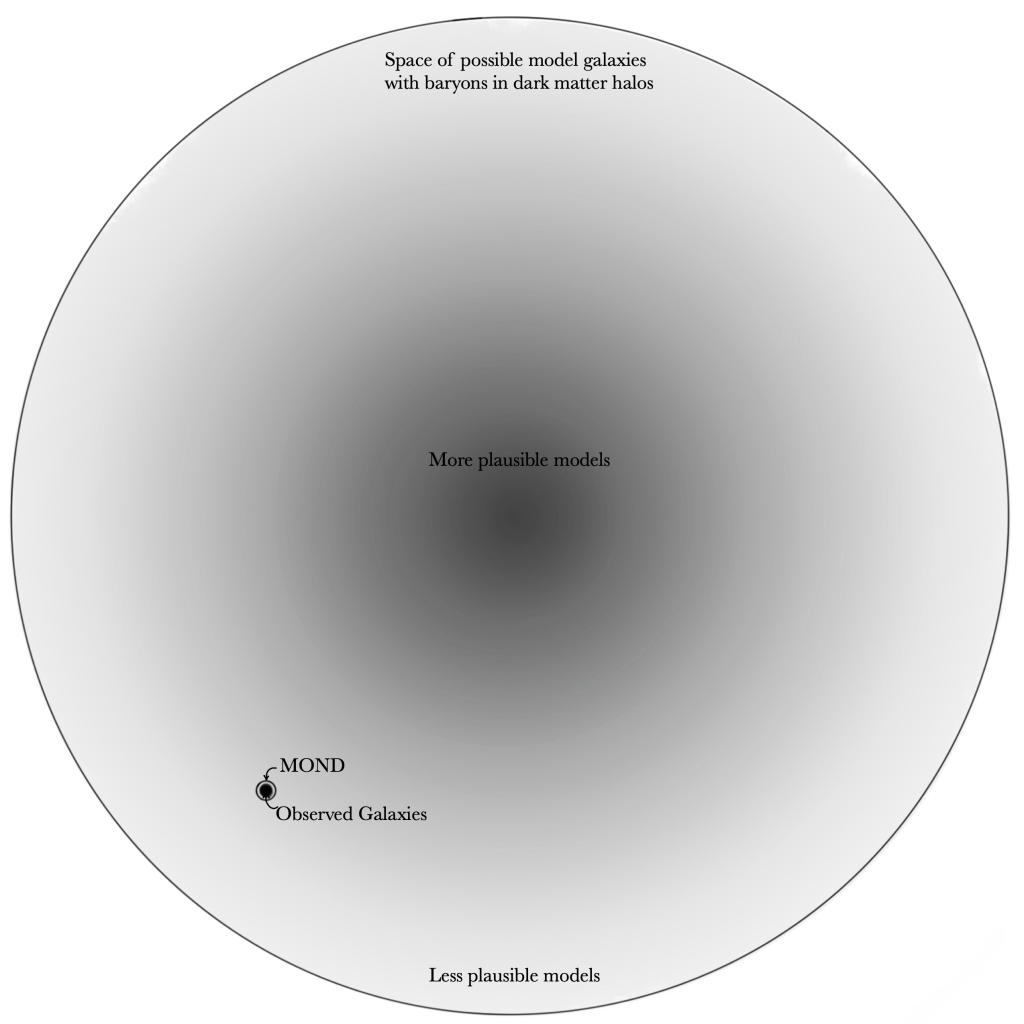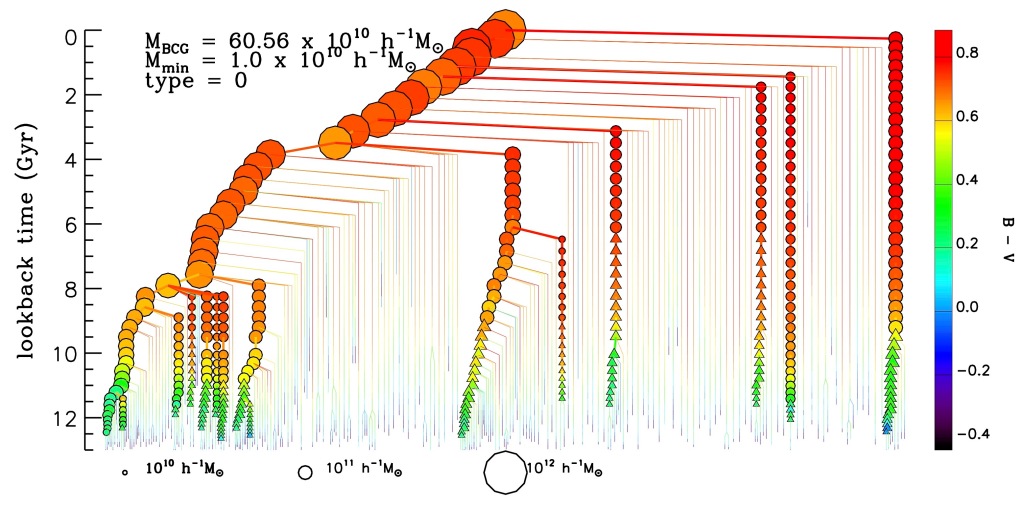
Dark matter remains undetected in the laboratory. This has been true for forever, so I don’t know what drives the timing of the recent spate of articles encouraging us to keep the faith, that dark matter is still a better idea than anything else. This depends on how we define “better.” There is a long-standing debate in the philosophy of science about the relative merits of accommodation and prediction.








